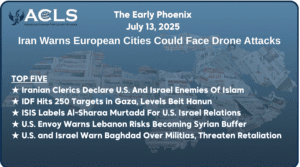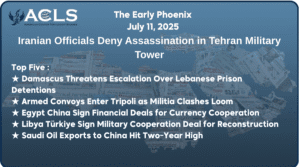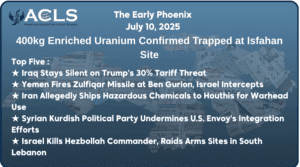United States of America
1-Biden’s Foreign Policy Quandary: Iran’s Expanding Influence in Ukraine and Middle East.
The Biden administration is currently navigating a multifaceted foreign policy challenge, marked by Iran’s escalating aggression in both the Ukraine conflict and the Middle East. The White House has expressed concern over Iran’s potential provision of ballistic missiles to Russia, a move that could significantly escalate the situation in Ukraine. This concern, voiced by spokesperson John Kirby, casts doubt on the strategy of engaging Iran financially in hopes of promoting regional peace.
In the Middle East, the situation is equally complex. Iran has requested Russian intervention in the Israel-Palestine conflict, while Saudi Arabia is seeking Chinese support for a ceasefire. These actions underscore Iran’s substantial influence and its role in regional disruptions, which starkly contrasts with the anticipated outcomes of the Biden administration’s diplomatic and financial overtures towards Iran.
Compounding these challenges are recent developments in Iraq, where Iranian-backed Iraqi factions have conducted a drone strike on the Harir U.S. base, retaliating against the Gaza bombings. In response, the US military executed strikes south of Baghdad, targeting groups affiliated with Iran and citing self-defense, leading to at least five casualties. The recent escalation in Iraq, marking the first significant conflict since the Israeli offensive on Gaza, brings to the forefront critical questions regarding U.S. foreign policy towards Iran. This situation prompts a reevaluation of past strategies and their effectiveness. Thirteen years following President Obama’s decision to withdraw American forces from Iraq, the U.S. finds itself confronted with challenges reminiscent of those faced in Fallujah, signaling a potential regression in regional stability.
The recent events in Iraq necessitate a critical review of Obama’s foreign policy, particularly its impact on Iran’s role in the Muslim world. This reevaluation focuses on whether the implications of empowering Iran were fully grasped or underestimated within regional dynamics. The extent to which these policies may have inadvertently strengthened Iran’s regional dominance, potentially diminishing U.S. global influence, is hotly debated. Analysts must discern if the Obama administration correctly anticipated the outcomes of its policies on Iran’s strategic ambitions, a crucial factor for future diplomatic and strategic planning in an evolving geopolitical landscape.
=========================
Sources: Times of Israel
Israel & Palestinian Territories
2-Military Operations and Ceasefire Prospects.
The IDF’s strategic focus on undermining Hamas’s infrastructure has led to the destruction of over 400 tunnels, a testament to their relentless ground operations. This military assertiveness, however, comes at a grave human cost, with 69 casualties reported thus far. In the midst of these operations, a glimmer of hope emerges with the prospect of a temporary ceasefire. This proposed pause in hostilities, slated for Thursday, hinges on a delicate exchange of Israeli hostages and Palestinian prisoners. The intricacies of this agreement, including the release mechanism and the timing of the ceasefire, are yet to be fully unveiled.
3-International Diplomacy and Regional Shifts.
The geopolitical landscape of the Middle East is witnessing a remarkable transformation. Qatar, spearheading the mediation efforts, seeks to bolster its international stature. The anticipated meeting between Mossad Chief David Barnea and Qatari Prime Minister Mohammed bin Abdulrahman bin Jassim Al Thani in Doha underscores Qatar’s pivotal role. Concurrently, a notable shift is observed as Saudi Arabia collaborates with China, signaling a transition from regional rivals to global influencers. This joint effort in supporting a regional ceasefire marks a significant realignment in their diplomatic postures.
4-Humanitarian Concerns and Responses.
Amidst the strategic and diplomatic maneuverings, the humanitarian crisis in Gaza remains acute. The ongoing rocket sirens in border towns and the IDF’s allegations of Hamas using civilians as shields highlight the grim reality of the conflict. The tragic loss of over 50 members of the Qadura family in Jabalia and the interception of a missile aimed at Eilat are stark reminders of the conflict’s toll. The proposed 4-day ceasefire and prisoner exchange offer a potential for de-escalation. However, the Islamic Jihad‘s stance on prisoner releases and Hamas leader Sinwar’s intention to leverage the post-ceasefire humanitarian crisis for international pressure reveal the complexities of achieving lasting peace. The expected influx of humanitarian aid, involving both Arab and European nations, presents an opportunity to alleviate some of the immediate suffering. In this context, Pope Francis’s separate meetings with families of Palestinian prisoners and Israeli captives, and his emphasis on a peaceful resolution, resonate as a moral imperative amidst the chaos.
=========================
Sources: IRNA
Iran
5-Iran’s Controversial Role in Regional Conflicts: A Barrier to Peace.
The persistent involvement of Iran in regional conflicts, as evidenced by recent statements from Iranian leaders, underscores a critical issue: Iran’s path to peace and stability is obstructed by its current policies and actions, particularly those related to supporting groups like Hamas. Ayatollah Khamenei‘s praise of Hamas for its operations against Israel, and President Raisi’s criticism of the West’s support for Israel, reflect a foreign policy approach that exacerbates regional tensions. This strategy, far from fostering a legacy of peace, perpetuates a cycle of conflict and undermines Iran’s potential for peaceful coexistence within the international community.
Iran’s alignment with groups engaged in violent conflict, as indicated by the IRGC Chief‘s comments on the Gaza crisis and the Iranian MP’s suggestion of a new military front against Israel, reveals a deep-seated inclination towards confrontation rather than diplomacy. This approach not only isolates Iran on the global stage but also hinders the prospects for long-term peace in the region. For Iran to secure a peaceful and respected legacy, it must reconsider its support for groups involved in violent conflicts and instead embrace a path of constructive engagement and peaceful resolution of disputes.
=========================
Sources: i24
Lebanon
6-Hezbollah’s Ceasefire and Iran’s Role in Shaping Lebanon-Israel Tensions.
In a notable development, Hezbollah, influenced by Iran, has agreed to a four-day ceasefire with Israel, as reported by Al Jazeera. This decision, contingent on Israel’s adherence, comes with a warning of retaliation for any breaches. This move aligns with recent interactions between Iranian Foreign Minister Hossein Amirabdollahian and Lebanese officials, highlighting Iran’s deep involvement in Lebanese politics and its stance on regional issues, especially concerning Palestine and Israel.
Hezbollah’s reveal of the ‘Volcano’ missile, a significant addition to their arsenal, underscores the escalating military capabilities within the region. Announced by Hassan Nasrallah, this missile, with a substantial warhead and considerable blast radius, demonstrates Hezbollah’s growing military strength. These developments, including Hezbollah’s ceasefire commitment and the showcasing of advanced weaponry, reflect Iran’s strategic influence in Lebanon’s approach towards Israel, marking a critical point in the regional power dynamics.
=========================
Turkiye
Sources: Al Monitor
7-Erdogan’s Algerian Outreach: Boosting Investment and Gas Ties, Advocating for Palestine.
Turkish President Recep Tayyip Erdogan, during his first visit to Algeria since 2020, announced plans to increase Turkish investments in Algeria to $10 billion, up from the current $6 billion. This announcement came at the Algerian-Turkish Business Forum in Algiers. Erdogan emphasized Turkiye’s role as the largest investor in Algeria outside the oil and natural gas sector, providing significant job opportunities. The visit saw the signing of 12 cooperation agreements in various fields including trade, education, culture, and environment. Additionally, Turkiye and Algeria extended their liquefied gas purchase agreement for three more years, with Turkiye continuing to import 4.4 billion cubic meters of gas annually. Erdogan also voiced support for a potential deal between Hamas and Israel, condemning Israel’s actions in Gaza and advocating for Israeli leaders to be tried in the International Criminal Court. The Turkish leader’s visit underscores a strengthening of diplomatic and economic relations between Turkiye and Algeria. Additionally, both leaders strongly criticized Israel’s actions in Gaza, advocating for taking Israel to the International Criminal Court. Erdogan expressed hope for positive outcomes in negotiations for the release of hostages in the region.
8-FM Fidan’s Diplomatic Efforts: Addressing Gaza, Urging EU on Türkiye’s Bid.
Turkish Foreign Minister Hakan Fidan embarks on a UK and France tour with an Arab-Islamic ministerial delegation, focusing on the Gaza crisis. Spearheading this initiative, Türkiye also urges the EU to make a strategic decision on its long-standing membership bid. Fidan emphasizes Türkiye’s role as a stability actor in regional crises and calls for the EU to acknowledge Türkiye’s strategic importance, including its stance on a two-state solution for Cyprus.
9-Turkiye Thwarts Mossad Operation, Safeguards Palestinian Engineer.
Turkish intelligence foiled an Israeli Mossad plan to abduct Palestinian software engineer Omar A., known for breaching the Iron Dome system. Omar, initially targeted in Gaza and later in Istanbul, was tracked by Turkish authorities to Malaysia, where they prevented a Mossad interrogation attempt. Upon his return to Istanbul, Turkish intelligence ensured his safety, capturing Mossad operatives involved in the abduction plot.
=========================
Follow the latest news from the American Center for Levant Studies via Google News



